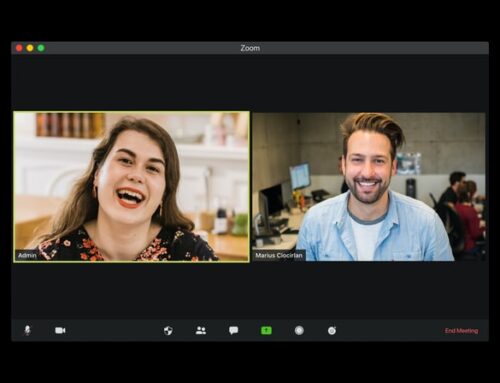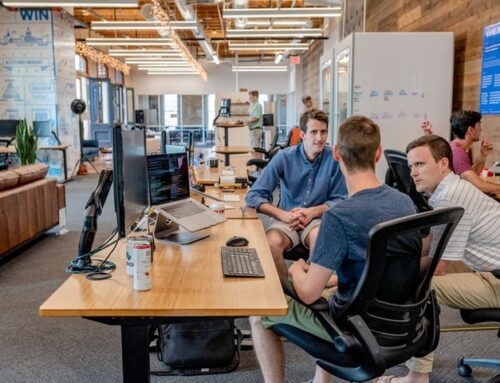1998 is possible best remembered as the year in which Auckland suffered its five-week power blackout, Bill Clinton denied sexual relations with “that woman” Monica Lewinsky, and France beat Brazil to win their home World Cup.
But it was also the year that Corporate Connect first started up – and, certainly, the technological and society changes of the past 17 years have meant a fair amount of adaptation to how call centres work.
So we caught up with Corporate Connect’s Operations Manager Sharon Rowell to discover how those changes have affected the company.
How has the company’s role changed since it was set up 17 years ago?
In 1998, when we first started off, Corporate Connect was much more of message-type service so our role was to collect information from caller and pass it through to the company so they could follow it up later. We did do a full service for some clients but we had to build internal systems to cope with that first. So the main way the business has evolved is that we’ve become far more of a “contact centre” so now we’re the touchpoint for anybody wanting to visit a client company for whatever reason and using whatever medium. That means we’re working a lot closer with our clients and instead of being message service and sending the message back to them via our system, now we’re using the internet to go into their software. This means there’s a lot less double-handling and we’re more part of the whole company we’re working for. This is fairly typical of the direction the industry has gone – from being mostly phone calls to social media, taking emails and webchat to supporting websites as well. The direction from here is likely to be heading into more teleconferencing-type models.
Can you pinpoint at what stage the industry started to change to this more integrated system?
It’s been really slow progress – but really over the past five to seven years we’ve really seen a change. So for some of our clients, we’ve had to have special lines set up into their system but now with others it’s via an internet portal. The change has really been determined via the new technology.
And that’s surely brought challenges with it?
The main challenges are security and dealing with new technology. We’re working with clients with different technical platforms – one might be Windows-based platform while another might be Novell, one company might be working on Windows 2008 while another might be 2012 – so a lot of intricacies of the business is down to technology. What’s important though is that they don’t have to adapt to us – we have to adapt to them.
And how do you go about that?
The technology we have here is huge – it’s the type of technology you’d expect to find in a company with 100+ people working all the time. And it has to work because we can’t afford to have any downtime and our clients make it clear that they all need business continuity plans because they can’t afford to have any downtime either.
How have you adapted to the new implications of companies’ concerns around data security and privacy?
Security is other main area of change over recent years – we’re really conscious of that. But we’ve been conscious of that all the way through so in some respects that’s not something that’s changed too much for us – it’s just the layers of security which have increased. We’ve always been conscious about the fact we don’t work for just one person, we work for a whole raft of different clients and they can be competitive, so privacy is something drilled into staff right from the beginning. We impress on them the importance of not sharing information, they’ve never been allowed to take written information out of the building, and they can’t bring USB sticks and put them into their computers – we’ve monitored that for years.
How can you show you’re at forefront of the industry at this?
I find this interesting – it’s just expected it’s going to be delivered. You don’t have to prove it, it’s expected of us.
So how do you describe the full Corporate Connect service as it stands today?
That word “full” describes it well in that we’re a lot more involved in the functionality of that company, right down to the fact that the company might employ people doing exactly the same thing as us but we’re supporting the organisations a lot more. So where before we might have stood in for them when their call centres shut down at 5pm and before they set up the next morning, now we’re the total backup. So if they want to go into a team meeting, the calls come through to us, or if they’re having an exceptionally busy day, those calls will overflow into us. We’ll be expected to be able to deal with 85% of those calls and really only 15% might go back into them to complete.
And has that more comprehensive service changed the way you train your staff?
Training is huge for us. It is a minimum of to nine months for someone to be fully trained and fully competent. So we’re very lucky at Corporate Connect that we have very low staff turnover here compared to many other call centres – and I think that has a lot to do with the variety of work we do here. We have a core staff of about 45-50 people and then bring extra people on for projects. I call us boutique – but our size means we can work in with clients, and, whatever they’re after, we can sync in and make it work.
How has Corporate Connect reacted to growth of overseas call centres?
From my point of view it’s about how we treat our staff. This is really a family-run organisation right down to the way we employ new staff. If we have a vacancy, we’ll let staff know first and ask if they have anyone they want to put forward for the role. We have staff here who have been with us well over 10 years. And we ensure the work environment is really nice with a decent amount of space, a beautiful breakout room that’s nice and light and it’s airy and they’re not crammed in. I think we take really good care of our staff and in return they take care of us. And because of the size of Corporate Connect, we’re very much a team – they staff know they’re not a number, they’re part of a team. And I think that has a good knock on effect for our clients because if our staff get a call which is out of the norm and not running according to a set process, they know what to do – they’re not worried that they just have to follow rote. If someone says something and a little alarm bell goes off and they can see that the caller don’t fit into a specific category, they’ll wonder whether there’s something else they can do about it. This gives them a wider range to deal with calls than people in Philippines are allowed.
Can you see industry heading towards a model which similar to yours or which is more homogenised?
I’d like to think they’ll become more like ours but I understand why a lot of companies are more about cost-effectiveness – I just don’t think it works well if you’re interacting with a customer. Using a personal example just the other day I was dealing as a customer here with a centre based out of Australia and it took three emails over two weeks to get a response – and that was only after the threat that I was going to go to their social media page if I didn’t get a response. That would never happen at Corporate Connect because there are checks in place to makes sure everything is dealt with and nothing is left outstanding. It’s interesting – we have lost a little work to The Philippines and lot of talk in industry about “nearshoring” where, say, Australia will say it’s cheaper wage-wise to work from New Zealand where there’s no GST. But now with the currency rate the way it is, that’s not as cheap as it used to be. There are fads that go through industry – and The Philippines will always have a role to play but I’d like to think that a lot of the standard-type customer interactions are being handled in different ways now and there are more complex interactions. I’d like to think that that’s where a company like Corporate Connect really fits in.
So it’s that more personal and skilled approach which allows Corporate Connect to stand out these days?
Companies have learned that by pushing more information on to the internet or on to IVRs [interactive voice response technology] they’re losing some of that vital contact with their customers. And when you lose contact with your customers, you also lose that loyalty so they’re realising that by putting emphasis more on touching and talking and informing their customers, they can keep their loyalty.
For more information on how Corporate Connect’s years of experience can help your company connect better with your clients and customers contact us on 0800 230 000 or email us via the website.












